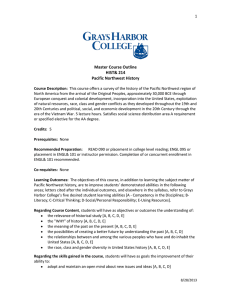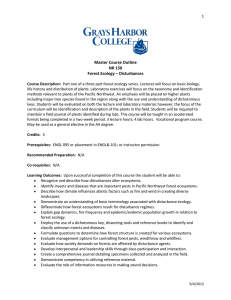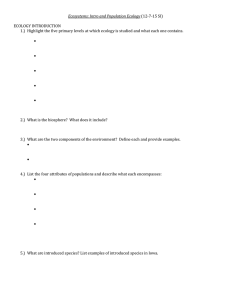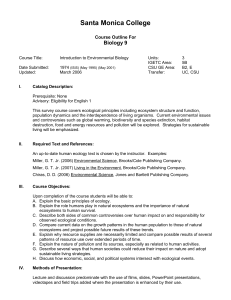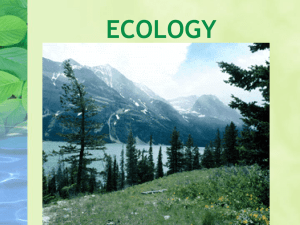Master Course Outline NR 160 Forest Ecology – Habitats
advertisement
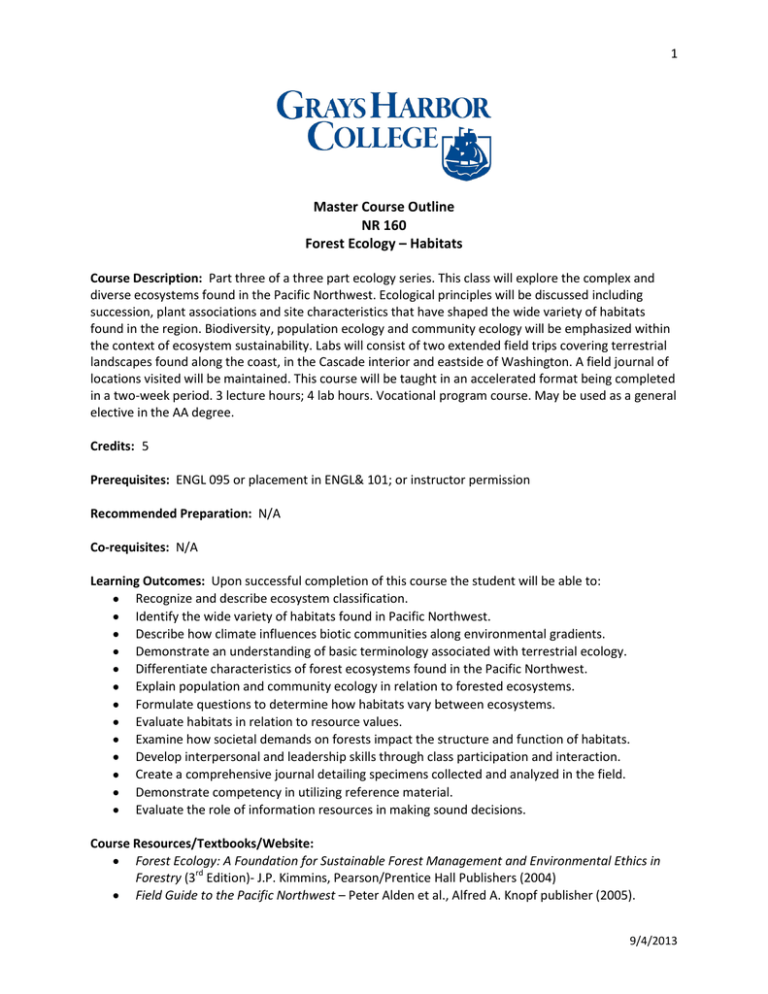
1 Master Course Outline NR 160 Forest Ecology – Habitats Course Description: Part three of a three part ecology series. This class will explore the complex and diverse ecosystems found in the Pacific Northwest. Ecological principles will be discussed including succession, plant associations and site characteristics that have shaped the wide variety of habitats found in the region. Biodiversity, population ecology and community ecology will be emphasized within the context of ecosystem sustainability. Labs will consist of two extended field trips covering terrestrial landscapes found along the coast, in the Cascade interior and eastside of Washington. A field journal of locations visited will be maintained. This course will be taught in an accelerated format being completed in a two-week period. 3 lecture hours; 4 lab hours. Vocational program course. May be used as a general elective in the AA degree. Credits: 5 Prerequisites: ENGL 095 or placement in ENGL& 101; or instructor permission Recommended Preparation: N/A Co-requisites: N/A Learning Outcomes: Upon successful completion of this course the student will be able to: Recognize and describe ecosystem classification. Identify the wide variety of habitats found in Pacific Northwest. Describe how climate influences biotic communities along environmental gradients. Demonstrate an understanding of basic terminology associated with terrestrial ecology. Differentiate characteristics of forest ecosystems found in the Pacific Northwest. Explain population and community ecology in relation to forested ecosystems. Formulate questions to determine how habitats vary between ecosystems. Evaluate habitats in relation to resource values. Examine how societal demands on forests impact the structure and function of habitats. Develop interpersonal and leadership skills through class participation and interaction. Create a comprehensive journal detailing specimens collected and analyzed in the field. Demonstrate competency in utilizing reference material. Evaluate the role of information resources in making sound decisions. Course Resources/Textbooks/Website: Forest Ecology: A Foundation for Sustainable Forest Management and Environmental Ethics in Forestry (3rd Edition)- J.P. Kimmins, Pearson/Prentice Hall Publishers (2004) Field Guide to the Pacific Northwest – Peter Alden et al., Alfred A. Knopf publisher (2005). 9/4/2013 2 Academic Integrity: All forms of cheating, falsification, and plagiarism are against the rules of this course and of Grays Harbor College. Students who are unsure what constitutes academic dishonesty are responsible for asking the instructor for clarification. Instances of intentional academic dishonesty will be dealt with severely. Disabilities: Students who have documented disabilities that require accommodations in compliance with the Americans with Disabilities Act should contact the Disability Support Services coordinator as well as the instructor of the course in order to ensure that together we create an optimal environment for educational achievement. W Day, the final day to officially withdraw from a course, is the Thursday of the seventh week (Thursday of the fourth week for summer quarter). Students who do not withdraw by that date will receive the grades they have earned, regardless of whether they are attending the course or completing the work. Students who are considering withdrawal are strongly advised to consult with the instructor, advisor and financial aid prior to withdrawing. The only withdrawals allowed after W Day are complete withdrawals from all courses. 9/4/2013

